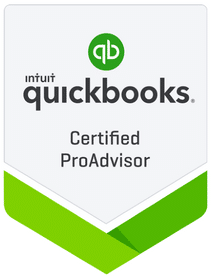- Patrick Roney
- (877) 503-8607
Follow Us :
Follow Us :
Proledge
December 3, 2010

You’ve decided to allow your clients to pay you by credit card, and you need to find yourself a merchant services provider. Is there an easy way to go about it? Not really, but there might still be a shortcut. Merchant service providers have mastered the art of making it excruciatingly difficult to compare one offer to another. However, if you take bookkeeping costs and convenience into consideration, Intuit’s Merchant Services might pull away from the pack. Let’s look at the options.
If you want the lowest possible processing cost, you should typically stay away from your bank’s or Intuit’s merchant services. There are many providers who can beat their prices easily. The problem is that it is extremely difficult to shop for the right provider, because there are dozens of parameters to take into consideration: discount rates, transactions fees, application fees, setup fees, statement fees, etc… Within the discount rates and the transaction fees themselves, pricing changes depending on your transaction volumes and whether you will be using a swiping a machine, taking the card over the phone or on a website. If you have an established business and you already have a merchant services provider, you can run scenarios and do a decent job at seeing if a competitive product could save you money, but if you are starting from scratch, it becomes very difficult to compare things on an apple to apple basis because you have to make so many assumptions on the pattern of transaction that you are expecting.
If processing cost is paramount for you, you are often better served by hiring a broker who can help you shop across multiple service providers. Beware of the agents who represents only a few providers.
Processing cost should not be your only criteria though. You need to look at reliability, customer service, all the fine prints in the contracts, and, last but not the least, the bookkeeping costs that you will incur to reconcile your credit card transactions into QuickBooks.
Most, if not all banks offer merchant services. They usually cost a little bit more, but you get the benefit of one-stop-shop, and hopefully, you can expect better customer services. That’s the only difference though. The differentiation is minimal.
If you want true differentiation, you then need to look at Intuit’s Merchant Services, because they offer a very elegant integration of the merchant services with QuickBooks. Several years ago, Intuit lost a lawsuit and were forced to open up QuickBooks to any merchant service providers who wanted to be able to download transaction into QuickBooks. So nowadays, many merchant services providers claim integration with QuickBooks, but nobody can match Intuit’s own integration with QuickBooks. They went several steps further than any other provider can.
If you select Intuit as your merchant services provider, you can charge credit cards from within QuickBooks, download the data into QuickBooks, send invoices that link to a web based self service payment interface, and more. One of the best features is how it simplifies the process of reconciliation.
Let’s say that you are using a merchant service provider other than Intuit’s and that you charge 3 transactions on Monday and 2 transactions on Tuesday. QuickBooks will record these 5 transactions separately and they will sit into the “Undeposited Funds” account. A few days later the merchant service provider will make 2 deposits on your bank account. One for Monday and one for Tuesday. It is now the end of the month and you or your bookkeeper need to reconcile the bank account. Theoratically, you would then need to go fetch the transactions in the Undeposited Fund account and migrate them to the checking account. The problem is that you now need to manually group the Monday transactions and recorded them as a deposit and hope that they match the bank statement. Often they don’t, either because one of the payments was lumped into the following day’s batch or transaction fees were taken out. To reconcile this, it takes a lot of time from you and your bookkeeper. However, if you are using Intuit’s Merchant Services, this process is completely automated in QuickBooks. One click of a button and you are done.
So, if you start adding the cost of bookkeeping to the cost of merchant services, don’t be surprised if Intuit’s Merchant Services end up being a more cost effective solution for small businesses. I hate to toot Intuit’s horn on this because I wish they could become more competitive on their transaction fees, but the reality is that they have a huge competitive advantage with their QuickBooks integration.


Fill out the form below to sign up to our Blog Newsletter and we’ll drop you a line when new articles come up.
Bookkeepers.
Professional. Affordable.
ProLedge is a bookkeeping services firm.
Copyright © 2024 All rights reserved.
Hello. Can we help you?